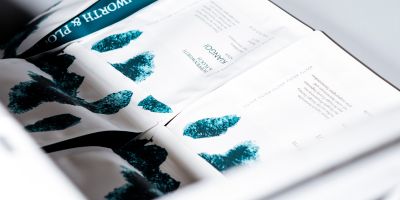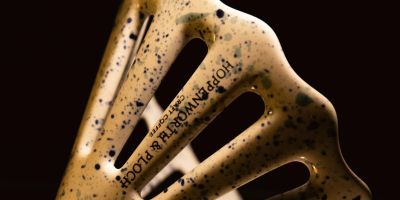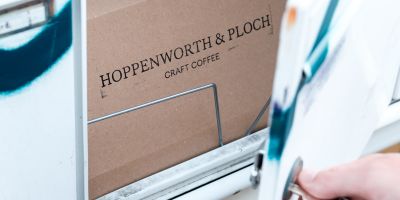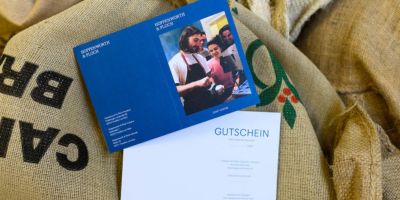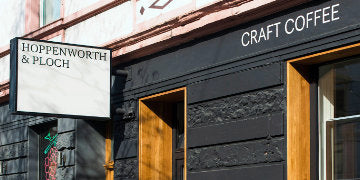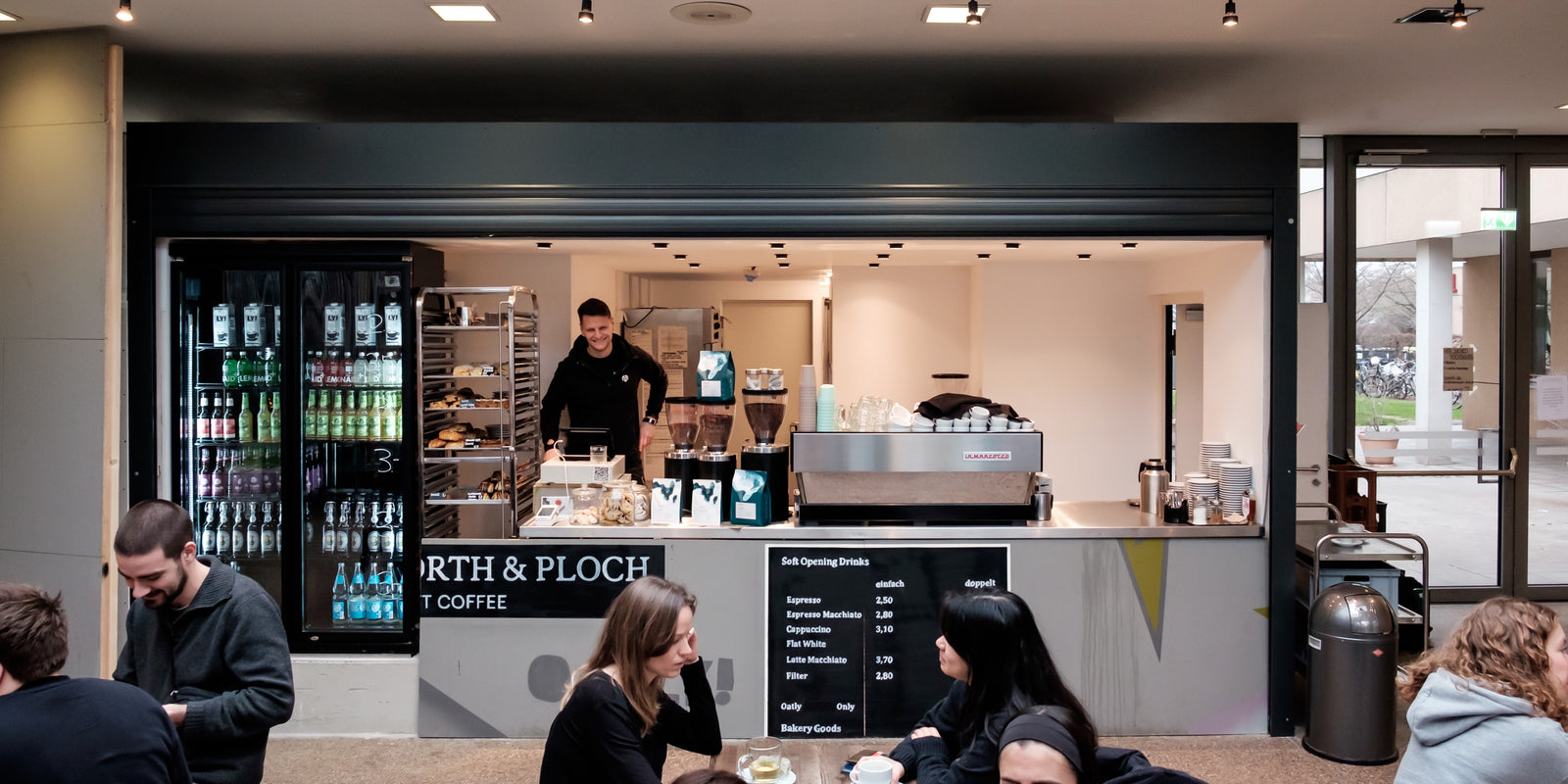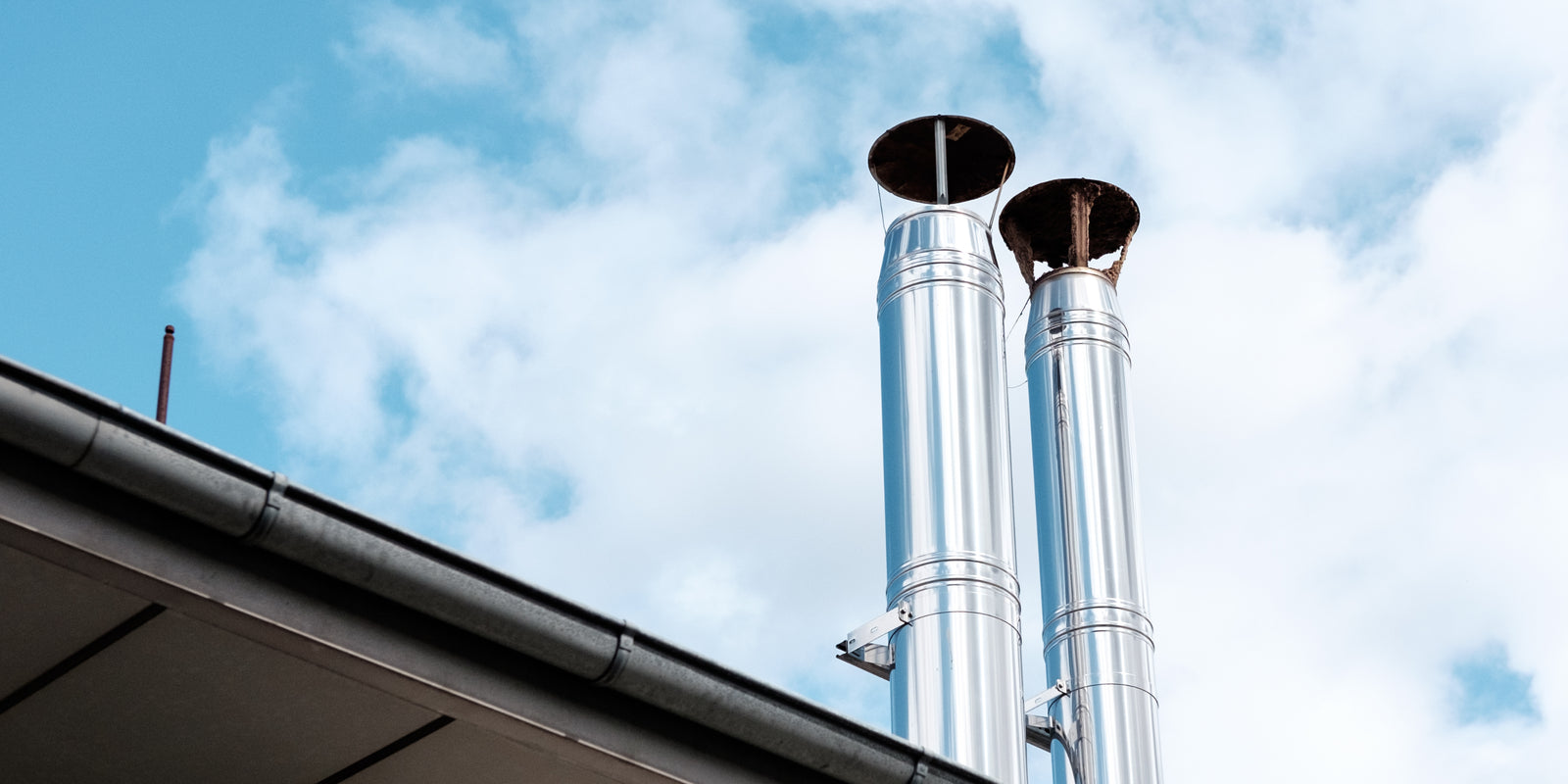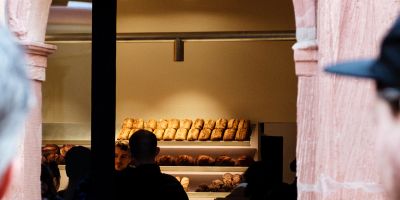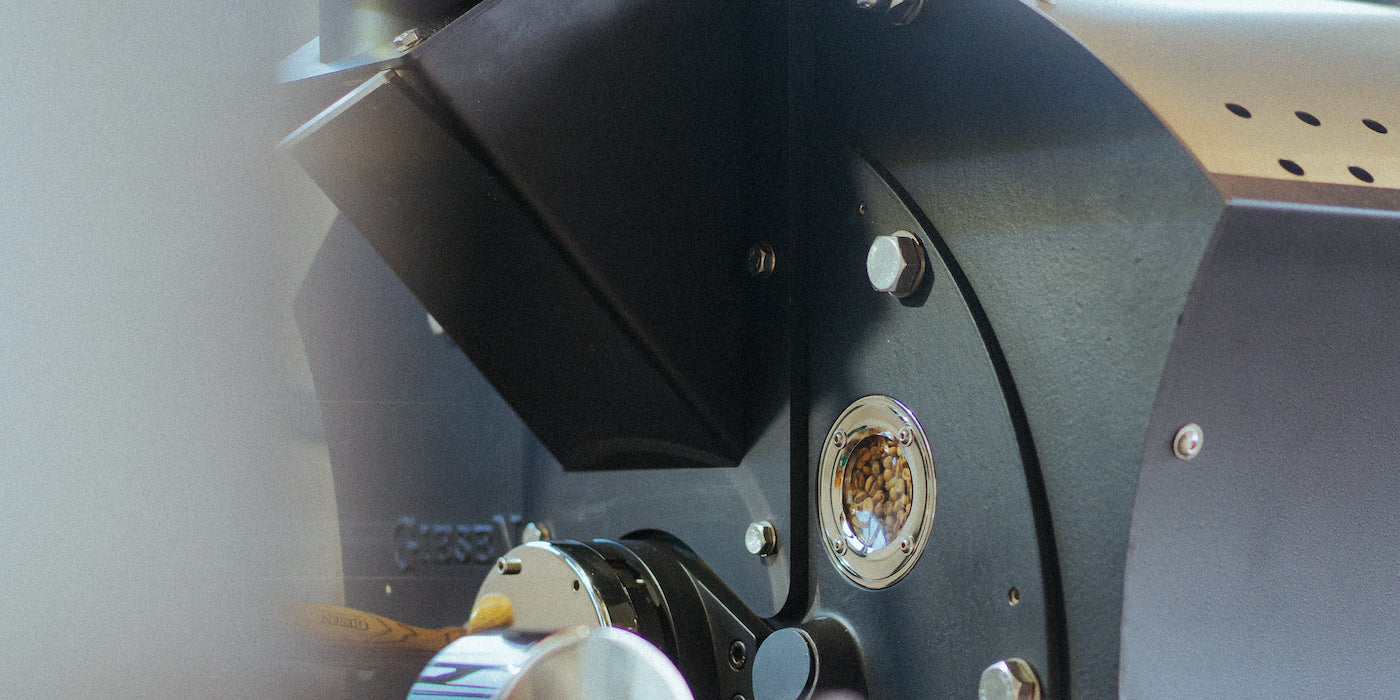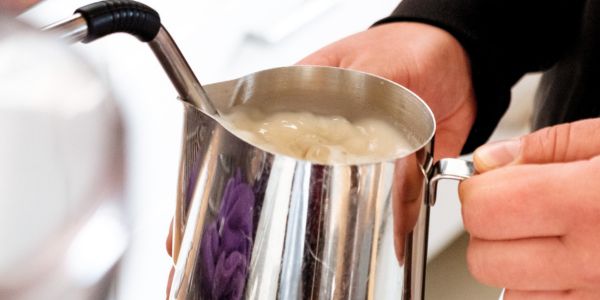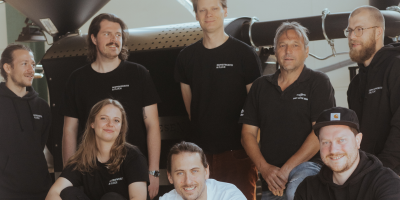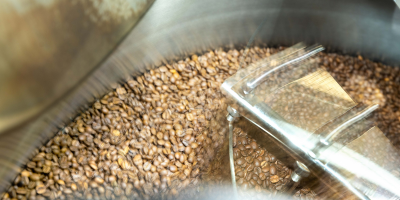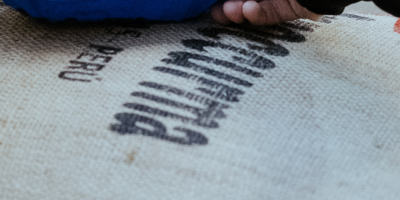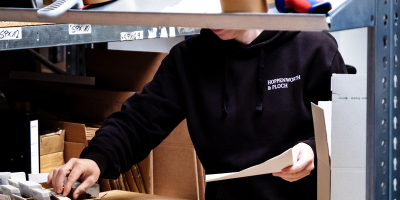Your Cart is Empty
New seminar dates every first friday of the month! // Free international shipping available
New seminar dates every first friday of the month! // Free international shipping available
Kurse & Seminare
About Us
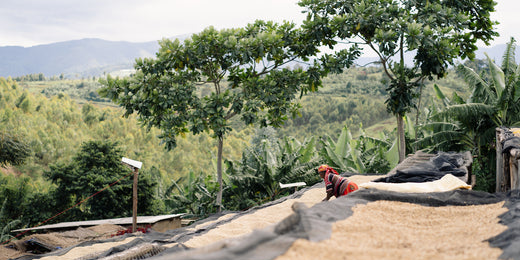
Coffee from Burundi - the Long Miles Coffee Project
May 12, 2021 8 min read
Coffee from Burundi - the Long Miles Coffee Project
Since Kristy and Ben Carlson founded the Long Miles Coffee Projectin 2011 they have had a tremendous impact for the local coffee farmers and for specialty coffee from Burundi in general, putting Burundi on the map of specialty coffee. Some numbers? While they started out to work with just 50 farmers, they now work with over 5000 coffee farmers in the Kayanza region, from 40 unique hills and operate 3 washing stations & a model farm.
All the while, they produce outstanding coffees that truly express the potential and terroir of Burundian coffees! For us, Long Miles represents the immense potential of specialty coffee: to produce great coffee & at the same time improve the lives of coffee farmers.
In a nutshell, the Long Miles Coffee project is a pioneering project for us in the specialty coffee sector. Every year we really look forward to their coffees, which we know have an immense positive impact locally.
We want to give this work a platform through their coffees but also through stories! So we are pleased that we were able to conduct an interview with Seth Nduwayo, who ist the Quality and Production Manager of Long Miles. We talked with Seth about the project in general, the harvest season, their collaboration with farmers and about the impact of the pandemic on the coffee production.
Enjoy reading, maybe even with a delicious cup of our current Long Miles coffee!
Interview Long Miles Coffee Project & Hoppenworth & Ploch
Hoppenworth & Ploch (H&P): Hi Seth, thanks so much for taking the time to talk to us today about the work of the Long Miles Coffee Project in Burundi and your role in it, too.
Let’s start with a short introduction of yourself and your role at Long Miles.
Seth (S): My name is Seth Nduwayo, I’m Burundian, born in Bujumbura. [Bujumbura is the biggest city in Burundi, in the Northwest of the country]. At Long Miles I’m the Coffee Quality and Production Manager. I started working with Long Miles in 2015 as a temporary worker and became a permanent worker in 2016, starting as the Assistant Manager of the Bukeye washing station. After three years, I became the Washing Station Manager and after one more year the Coffee Quality and Production Manager.

H&P: How would you describe the mission of Long Miles?
S: The aim of long miles is to transform our community through the production of quality coffee. We have the coffee scouts who teach and help farmers on how profitable it is to produce quality coffee. In return for the extra effort we make sure that Long Miles is providing better pricing. For example, on the official price we can add around 15-20% of income on all the good cherries. So the aim in general is impacting communities through the production of high quality coffee.
H&P: How does a regular work day look for you?
S: That is not an easy question. [laughs] Not all days are similar, it really depends on the period and the location. Sometimes in Bujumbura where our main office is or upcountry at our washing stations or at our dry mill in Gitega. In Bujumbura its mostly office and lab work. When I’m upcountry its all about coffee processing. So, cherry reception, cherry processing, fermentation, grading, drying - all that is related to coffee production.
Coffee Processing at Long Miles
H&P: Is there a part of your work that you enjoy the most?
S: Processing coffee is composed of a lot of steps where one step is linked to another. I cannot enjoy cherry selection without processing or fermentation or I can not enjoy drying without enjoying dry milling. Everything is linked to everything else. I like processing coffee in general and I enjoy almost every step of that.“
H&P: And do you have a favourite process then?
S: I enjoy most of our coffees. As you know, each coffee will have its own particularity. Every coffee will be particular. For example fully washed coffees will be very clean, while the naturals will be very sweet and chocolatey. Taste wise, though, I prefer naturals a little bit more.
H&P: Is the natural processing more difficult than the washed processing?
S: In periods of much rain, yes. But other than that not really. Workers will keep rotating the coffee to ensure that it dries evenly. While natural coffees can just stay on the drying bed over night, we will need to remove a washed coffee during the night. The drying of natural does take up more space but that’s fine!
The harvest season
H&P: Moving on to the harvest that has just started, can you give us an impression about the start of a harvest season?
S:We have now done one month of receiving cherries at our washing stations. Though, due to belated ripening this year, the volume is still small. But we will expect more coffees rolling in in the upcoming weeks. Nevertheless, we have started to feel that pressure that comes with the harvest. During the harvest we have a lot of work and pressure. There is always work that needs to be finished by the end of the day.
H&P: What are the major challenges of a harvest?
S: In general, there is no harvest without challenges. And even in the case of challenges we feel the obligation to produce good coffee.
But major challenges are for example farmer’s resistance to cherry selection and the amount of rain.
Farmers resistance
Some famers will understand the need for cherry selection for better coffee and in the end, better payment. But some farmers, especially those that are new and have just started bringing their coffee to our washing stations, won’t like the way we select our coffees. They will say we’re too strict.
Too much rain or not enough rain
With too much rain the drying process suffers too much and can increase from 10 to 15 or even 20 days. If we are not careful enough we will produce a kind of funny or mouldy coffee which is not good for quality. But it can also be lack of rain, which prohibits the the rest of the coffee cherries that are still on the plants to ripen.
Collaboration with coffee farmers on the hills
H&P: One important pillar of the work of Long Miles is washing station ownership. Farmers bring their cherries to your washing stations where the cherries are graded and farmer’s paid accordingly. But, as you said, some will have a certain resistance against that because it’s different from the practices of other washing stations. So I guess another important part of your work is working closely with the farmers on their farms as well, is that right?
S:We are a company that is close to farmers. We have representatives on the producing hills, which we call coffee scouts. The coffee scouts are working on the different hills and reside there with the farmers. Right now we have 26 coffee scouts. They are in charge with the farmers education, they accompany the farmers in the whole producing process, for example when it is time to apply fertilisers, or when it is time to prune. They are kind of ambassadors of Long Miles in the hills. Moreover, they connect Long Miles to the producing community. They also help to select farmers on the tree instead of doing the selection at the washing station.
This is something which works well with farmers who have been with Long Miles for a long time. But in those hills where we don’t have coffee scouts, we will face more resistance and challenges with farmers. Where we don’t have coffee scouts we will face more resistance and challenges from farmers. So the role of the coffee scouts is really crucial in training and educating coffee farmers.
H&P: You were talking about hills and the coffees from Long Miles are also usually named after the hills that they were produced upon. What is behind the concept?
S: The concept of a hill goes with the concept of traceability. Long Miles is a specialty coffee company so tracing our coffee, knowing where it comes from and who is producing that is very important to us, as well as for the buyers and consumers. The coffee that is coming from one hill, or let's say one location with the same micro climate or similar terroir will tend to have a unique flavour, a kind of uniformity. It can have consistently higher quality, especially compared to a blend from all the coffees from the different hills.
Hence, the concept of hills is evoked for the concept of traceability. At the beginning of coffee processing we taste all the coffees. And looking at all the geographic characteristics we determine coffees who have similar profiles and combine them into hill coffees or microlots. From that time coffee from close hills will be processed together depending on their cup profile and geographic location.
H&P: How many farmers are associated with a hill on average?
S: There is a huge divide among our farmers. In general, we work with very very small scale farmers. There are farmers with 30 trees, some with 100 and other with 10.000 trees. So there are very big gaps between the farm sizes. We are working with 5000 farmers on average, and one hill could have between 600-800 farmers. So our lots will come from the same hill with the same micro climate but it will be a lot that is made of coffee from many farmers.
H&P: Hence, a coffee from Long Miles won’t be produced or can be traced back to to one particular farmer.
S: Yes, that is correct. We cannot identify specific farmers. Hence, a buyer cannot buy coffee from a specific farmer. But we make sure that every farmer profits from the lot that his cherries went to.So in case where a coffee is particularly good and sells particularly well, we will give the bonus to the whole hill instead of a single farmer.
The only lot that is completely traceable to one farm is the coffee from our own Long Miles farm. There we have around 17.000 trees, which will amount to 50-70 tons of coffee that can be processed separately. We also have farmers who produce 4 tons of cherries, but split up into 10 or 15 deliveries over the whole season or farmers with just twenty kilos. We cannot process these lots separately.
The effect of the pandemic
H&P: The last (pandemic) year has been particularly hard for the coffee industry, and especially for the producers of coffee. Did and does the pandemic affect your work, too?
S: Normally, we open the harvest season at the end of march or beginning of April, so right when the pandemic hit last year. So at the beginning of last harvest we weren’t sure whether we would have buyers for our coffee. A lot of the buyers were cancelling their offers, so we adjusted our targets from 1000 tons to 500 tons. Though, almost at the end of the harvest some people resumed ordering or confirmed orders after several months where they kept them pending. So, without the pandemic we could have processed and sold much more coffee. Luckily, this year it looks like people are adapting to the situation and can predict their demand better. We feel like whatever volume we can produce this year we can also sell. So this year isn’t as critical as last year has been.
H&P: Thank you so much for your time and the insights into your work! We will definitely continue buying coffee from you and are looking forward to the next harvest. 
Our current coffee from the Long Miles Coffee Project is the Heza - processed as a fully washed coffee at the Heza washing station and farmed at the Long Miles Model Farm. It's incredibly sweet, reminiscent of candied lemon, has a slight floral touch and a peach-like acidity. A real gem that is already a team favourite!
Join our Coffee Crew
10% discount on your first coffee order.And more: Sign up for our newsletter and never miss coffee releases, offers and background stories again.

Never miss out on great coffee again!
A new, freshly roasted coffee delivered to your home every month? Whether you prefer filter or espresso, our coffee subscription takes you on a regular sensory world tour through the world of coffee — with free worldwide shipping!

